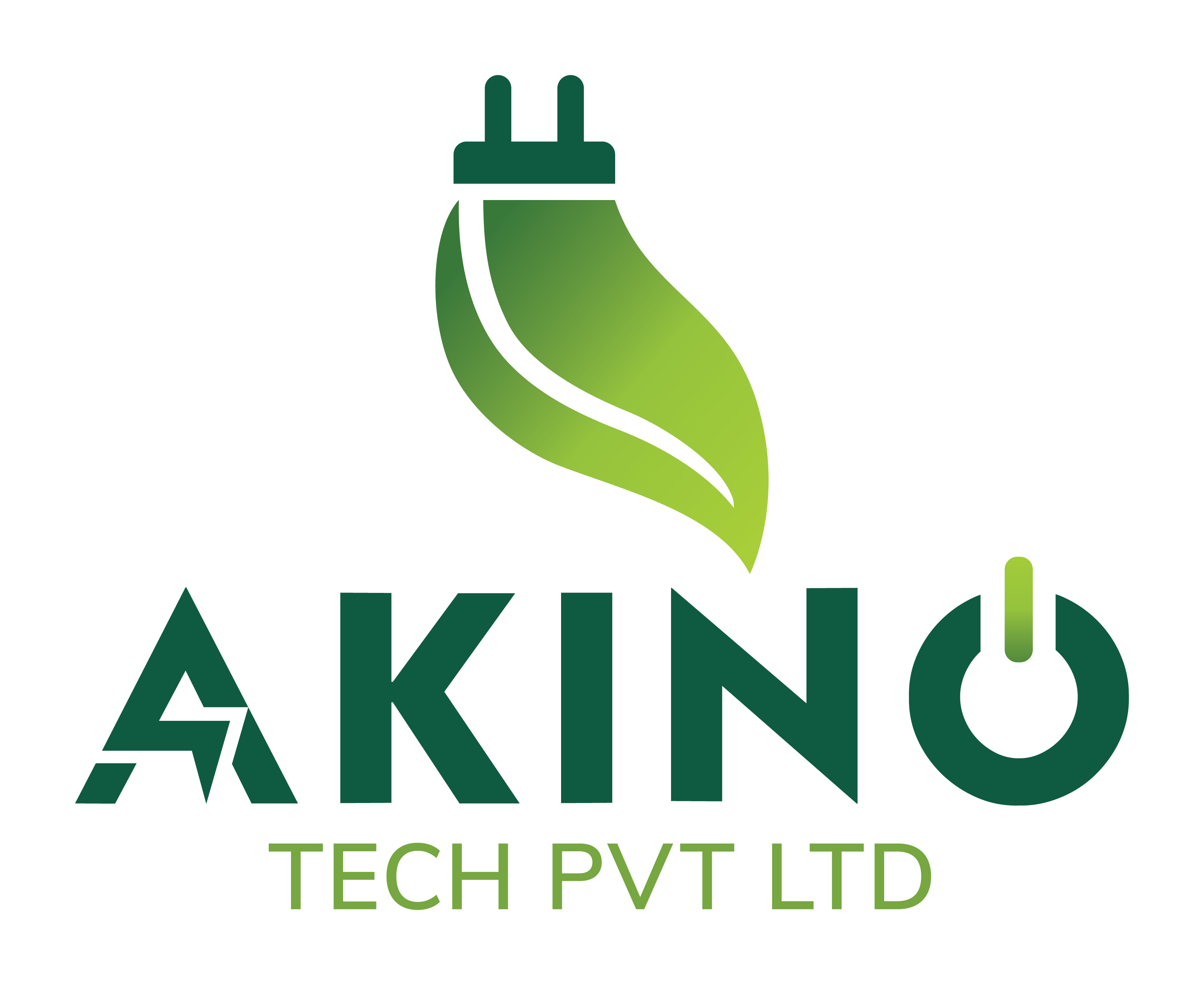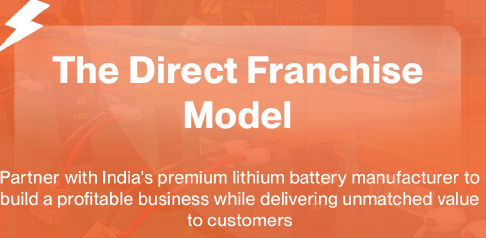Find EV EVSE course
Lithium-ion battery market at your city
Opportunities for the lithium-ion battery business in and around Asansol include electric vehicle (EV) battery solutions, renewable energy storage systems, and battery servicing and recycling, driven by rising demand for EVs and sustainable energy.
As the demand for EVs in India rises, there is a growing market for selling EV batteries and setting up charging infrastructure. You can provide repair, maintenance, and recharge services for EV batteries, a growing need as more EVs are deployed.
Solar Power Electric Vehicle Charger
Electric vehicles are the mode of transportation of the future. As electric vehicles are getting more and more popular, it has become critical to implement solar charging for electric cars and bikes.
Solar charging stations for electric vehicles have emerged as one of the best ways to reduce India’s dependence on fossil fuels for powering various modes of transport. We anticipate that in the coming years, nearly everyone who owns an Electric vehicle system will install a solar charging station in their home. This will necessitate a fundamental shift in how we think about refueling our cars, as well as a natural evolution of our energy infrastructure. The battery rating of an EV indicates the amount of power that it can store, which indicates how much power is required to fully charge it. And common EV battery sizes 100KWh to 200KWh. Solar-powered EV charging stations are the solution to bring that percentage down to zero. Not only is it beneficial for the environment, but it is also a major benefit for EV owners by reducing electricity bill.
Institute of Solar Technology offering a course on Solar EV Charging Station Designs, planning, costing, ROI, vendor selection and services as a starting point for EV charging installation projects. Case study of EV charging station business model, govt Policies and guidelines.
This course will deliver from basics of Solar Energy, PV Module technology, site selection for solar EV charger to EV Charging Station equipment, different types of Charger, connectors, charging station development and all other parts/ equipment selection, On-grid solar charging station, Off-grid solar charging station design, Vehicle-to-Grid (V2G) technology, workplace charging station, Understanding Finance Basics, GoI Guide line & Business Model, vendor selection, Understanding Finance Basics & Business Model.
The government, with the help of BIS,
ARAI, EESL and other bodies, has already released technical specifications on charging stations and some of the original
specifications like the AC-001 and the DC-001 have already been developed and charging stations have been deployed at select
locations. The newer guidelines require the charging stations to be equipped with multi standard chargers, viz. AC Type 2, the
CCS and the CHADEMO, in addition to the lower power AC and DC-001.
Solar Power EV Charging Station
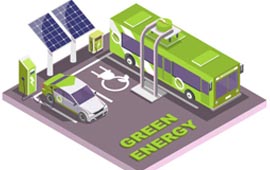
Solar Power Electric Vehicle Charging Station
Course Overview:
Solar charging stations for electric vehicles have emerged as one of the best ways to reduce India’s dependence on fossil fuels. Nearly everyone who owns an Electric vehicle will install a solar charging station in their home. Solar-powered EV charging stations are the solution to bring that percentage down to zero.Course Outcome:
Solar Power EV Charging Station (Design and Development) Program is a master program that takes an Engineer, designe engineer, installer from site assessment, all the way through power-up and pinpointing. Installers who take this knowledge will have all the information needed to efficiently and accurately assess, design and install charging stations.Today's Offer: FLAT 15% discount for online Session
2023 to 2029 Electric Vehicle Charging Station Market
In the EV sector, charging stations have proven to be the best category or opportunity. The charging stations are one of the networked business areas of electric vehicles. Currently, most EV customers are hesitant to buy electric vehicles due to the lack of charging stations in India. Numerous entrepreneurs are looking to shop for charging stations in their respective locations.
With EV growth, the demand for charging stations is rising, leading to intense competition among charging station providers.
Overall, the Electric Vehicle Charging Station Market presents new opportunities for growth and innovation, and the report offers valuable insights into upcoming trends and future scenarios for the industry. The market report presents a detailed evaluation of the market's influential factors, including drivers, trends, restraints, key segments, competitive landscape, and other significant elements that are contributing significantly to the market's growth.
Electric Vehicles new Opportunities
Businesses are increasingly going digital to break the cycle of escalating pollution and limit the usage of natural resources, which raises CO2 emissions in our environment. Currently, our country is riding the EV wave. EV Platforms are widely seen in the economy, and most people interact with them every day. EV technologies, and their ecosystems of complementors, are a manifestation of this shift in the way firms are organizing to create greater value for end-users.
EV & EVSE MSME Development Knowledge
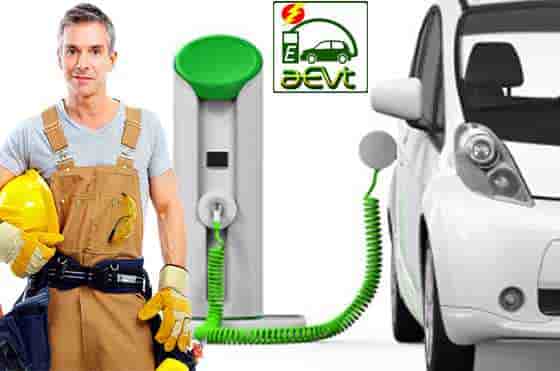
Course Overview:
EV EVSE Business Management for Entrepreneurs:India to become a manufacturing hub for electric vehicles in five years. Indian EV industry to represent Rs 500 billion opportunity by 2025.
This Techno Commercial knowledge: Throughout this session, AEVT bridges the needs of startups
Course Outcome:
Candidate can understand the technology from basic of EV to EVSE equipment like Lithium-ion battery, Battery pack assembly process, EV Motor, Charger, charging station development and all others parts/ equipment's calculation, selection, building a Legal Foundation, Understanding Finance Basics, Business Planning and Fundraising.Today's Offer: FLAT 15% discount for online Session
Solar charging stations for electric vehicles have emerged as one of the best ways to reduce India’s dependence on fossil fuels for powering various modes of transport. We anticipate that in the coming years, nearly everyone who owns an Electric vehicle system will install a solar charging station in their home. This will necessitate a fundamental shift in how we think about refueling our cars, as well as a natural evolution of our energy infrastructure. The battery rating of an EV indicates the amount of power that it can store, which indicates how much power is required to fully charge it. And common EV battery sizes 100KWh to 200KWh. Solar-powered EV charging stations are the solution to bring that percentage down to zero. Not only is it beneficial for the environment, but it is also a major benefit for EV owners by reducing electricity bill.
The Indian government has concluded that no license is required to build charging infrastructure as long as it meets the 'Ministry of Power' standards. As a result, there is no need for a special permission to transmit, distribute, or exchange power for the purpose of charging electric car batteries.
State governments have even announced the mandatory installation of charging stations in commercial and residential complexes, as well as a particular percentage reserved for electric vehicles in such complexes,to pave the way for adoption of the EV eco system.
Solar Power EV Charging Station

Solar Power Electric Vehicle Charging Station
Course Overview:
Solar charging stations for electric vehicles have emerged as one of the best ways to reduce India’s dependence on fossil fuels. Nearly everyone who owns an Electric vehicle will install a solar charging station in their home. Solar-powered EV charging stations are the solution to bring that percentage down to zero.Course Outcome:
Solar Power EV Charging Station (Design and Development) Program is a master program that takes an Engineer, designe engineer, installer from site assessment, all the way through power-up and pinpointing. Installers who take this knowledge will have all the information needed to efficiently and accurately assess, design and install charging stations.Today's Offer: FLAT 15% discount for online Session
In 'white gold' rush, India kick-starts talks with lithium-rich nations
Jammu and Kashmir's reserve might be present with a large amount of lithium, but the current amount is insufficient to match with the world's top reserves of Lithium. For India to become self-reliant in the field of solar energy storage and EV manufacturing without being dependent on China for EV battery supplies, it is important to own more such Lithium reserves and enhance its presence in overseas lithium mines. Solar lighting system operates on electricity from batteries, charged through the use of solar photovoltaic panels. It is composed of a battery, solar panel, LED lamp, and charge controller. The stored energy is collected in a rechargeable Lithium-ion battery used later to produce lighting at night. The rapid infrastructure development in all sectors of India is pushing local solar light manufacturers to compete and deliver innovative solar lighting products at low prices to increase their presence in the market.
Lithium-ion Battery pack assembly
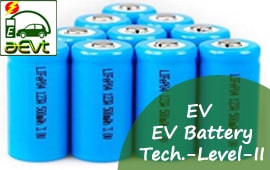
Techno Commercial knowledge to setup Lithium-ion battery assembly line for solar application, energy storage and EV 2W, 3W etc.
Practical skills - cell sellection, cell IR testing, cell balancing, charge discharge testing, module & pack assembling, enclosure selection, all machinery selection, assembly line planning and layout drawing, costing of assembly line, working capital, investment, ROI, business projection making, different product design.
Course Outcome:
Get the knowledge of Lithium-ion cell parameters, Cell Chemistry, Cell Architecture, Thermal Management, BMS and battery pack assembly technical and commercial detail before setup assembly line.
Today's Offer: FLAT 15% discount for online session
Electric vehicle (EV) industry
All-electric vehicles (EVs), also referred to as battery electric vehicles, use a battery pack to store the electrical energy that powers the motor. EV batteries are charged by plugging the vehicle in to an electric power source.
The key components are
Battery : Which has the stored energy
Motors : Which converts this into rotational energy for mobility.
Controller : Is an electronic hardware device +software which works very closely with the motor and is usually bundled with. A motor controller might include a manual or automatic means for starting and stopping the motor, selecting forward or reverse rotation, selecting and regulating the speed, regulating or limiting the torque, and protecting against overloads and electrical faults.
The motor of an electric car converts the current from the battery into mechanical energy. This is done by a fixed magnetic part (stator) and a moving part (rotor) that is made magnetic by electricity. If two positive poles are facing each other due to the electrical charge, they repel each other - and the moving part of the electric motor rotates.
Electric motors develop similar torque at low as well as at high speeds. Theoretically, therefore, a rigid connection between the motor and the drive shaft would suffice for them. In practice, however, an input gearbox is usually used as a so-called reduction gear, which reduces the speed of the motor by a factor of about 1:10.
The motor of an electric car consists of two electromagnets - stator and rotor. The stator is immobile and generates a constant magnetic field with the help of direct current. The rotor is rotatable and produces its magnetic field with alternating current. The two magnets alternately attract and repel each other. The rotor rotates - and thus sets the car in motion.
The inverter is also called a converter. This is because it has the task of converting the 3-phase AC voltage of the electric motor into a DC voltage for charging the battery when braking. Conversely, when the electric motor is driven, the battery's DC voltage is converted into a 3-phase AC voltage.
Lithium-ion batteries are the heart of our electric cars. They are particularly powerful and have the highest energy density compared to other batteries. This means that they can store the most energy per kilogram of battery. Lithium-ion batteries have numerous advantages: due to their compact size, more individual lithium-ion batteries fit in your Opel electric car. So you can travel further. They also require less energy to cool the vehicle battery to its optimal operating temperature.
Also good to know: our batteries are not affected by the so-called "memory effect". You can recharge your electric vehicle battery as often as you like - even through mobile fast charging - without any loss of performance.
Independent studies estimate that you can drive 250,000, even up to 500,000 km with the battery of an electric car1. The durability of our batteries is therefore probably on a par with that of our combustion engines. That's why we give an 8-year guarantee on our electric car batteries, or 160,000 km of driving.
Quick Inquiry Form
Class Time / Slot
Online class Available slot for working professionals
Next batch Class will start from December - 2025
| Slot | IST Time | Status |
| 1 | 7:30 AM - 9:00 AM | |
| 2 | 10:30 AM - 12:00 Noon | |
| 3 | 3:00PM - 4:30PM | |
| 4 | 8:00 PM - 9:30PM |
| Slot | IST | WAT | SAST | EAT | KST |
| 1 | 7:30 AM | 3 AM | 4 AM | 5 AM | 10 AM |
| 2 | 10:30 AM | 6 AM | 7 AM | 8 AM | 1 PM |
| 3 | 3 PM | 10:30 AM | 11:30 AM | 12:30 PM | 5:30 PM |
| 4 | 8 PM | 3:30 PM | 4:30 PM | 5:30 PM | 10:30 PM |
4 Slot 4 batch each slot
Admission Going on for
EV Technology and Business Management - Techno Commercial Training (online)
Today's 15% Discount From:
December - 2025

Course Duration: 2 + 1 Months
EV Battery Pack Assembly Line Training (online)
Today's 15% Discount From:
December - 2025

Course Duration: 2 + 1 Months
Solar Power EV Charging Station (online)
Today's 15% Discount From:
December - 2025

Course Duration: 2 + 1 Months
Visit our Google Map












View all Job








